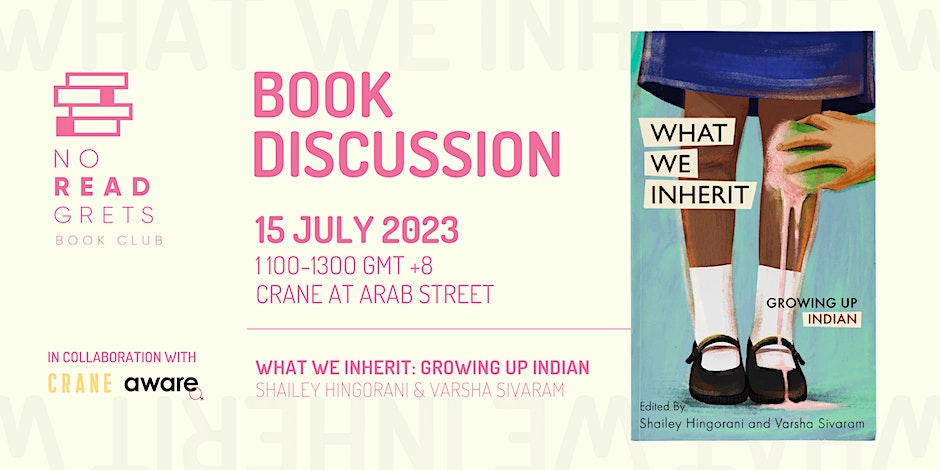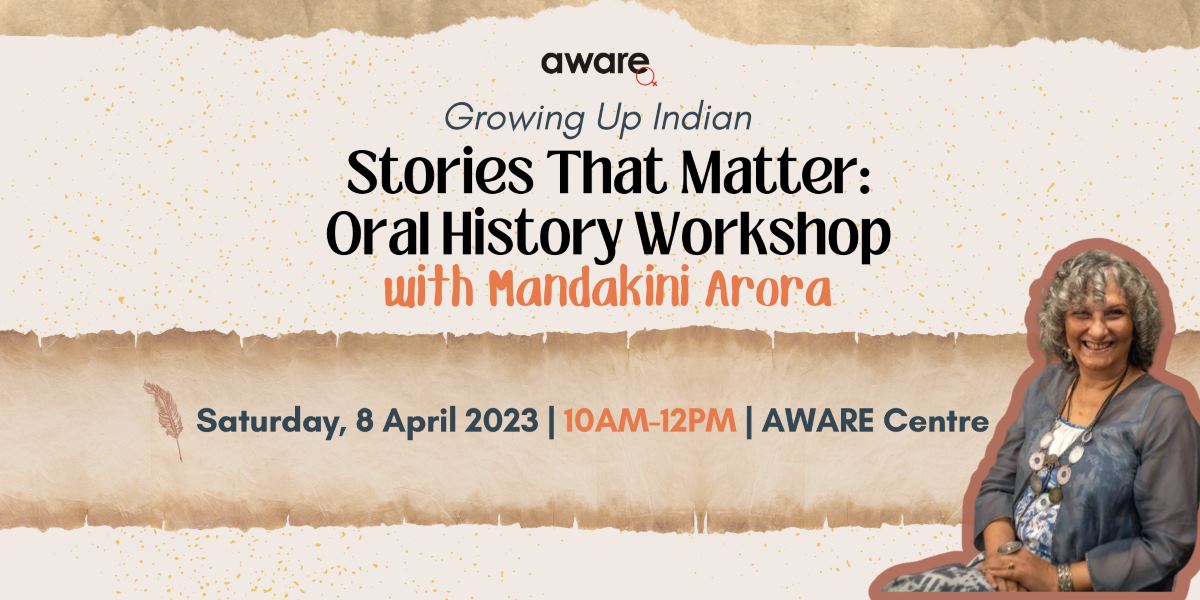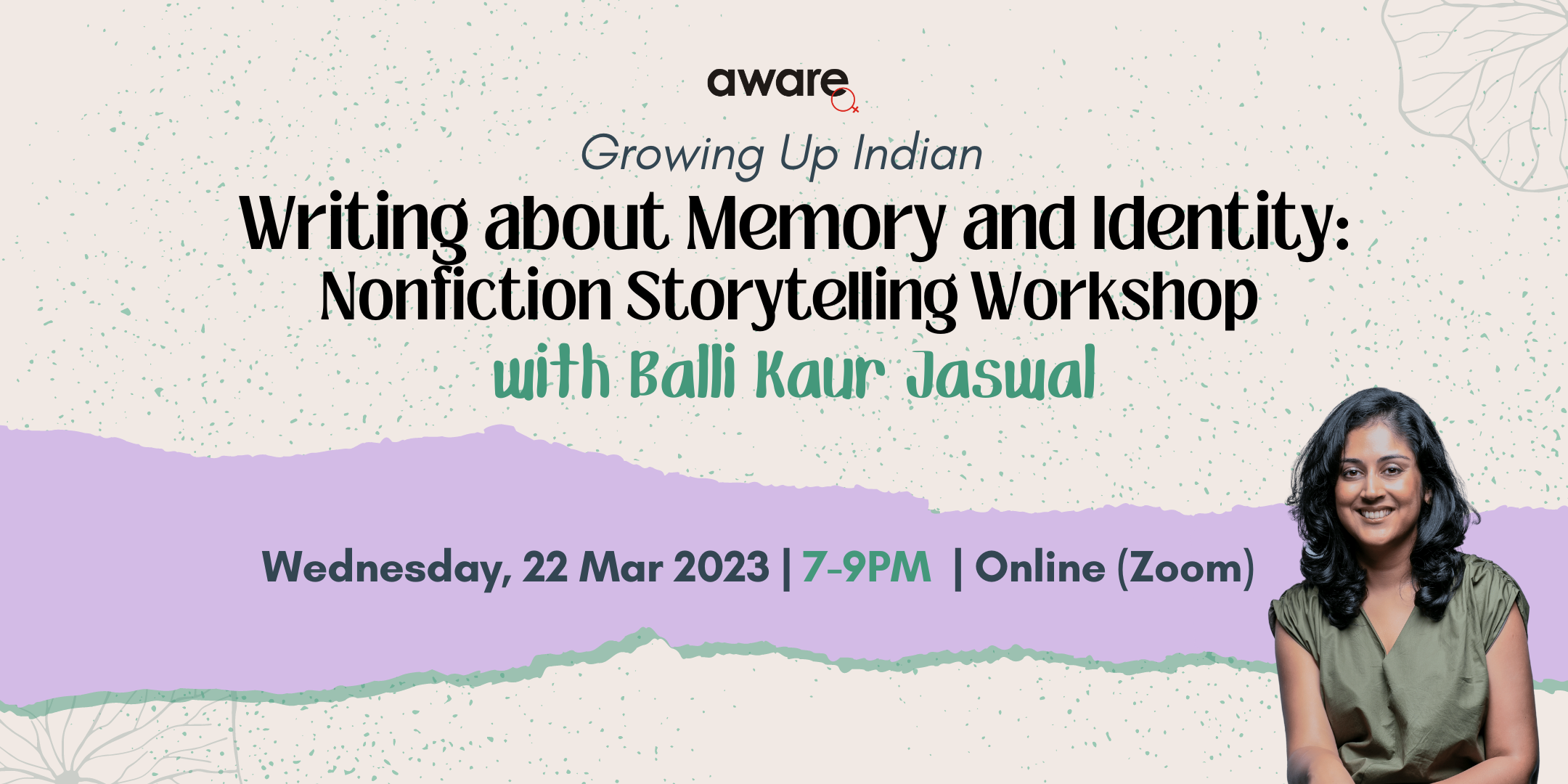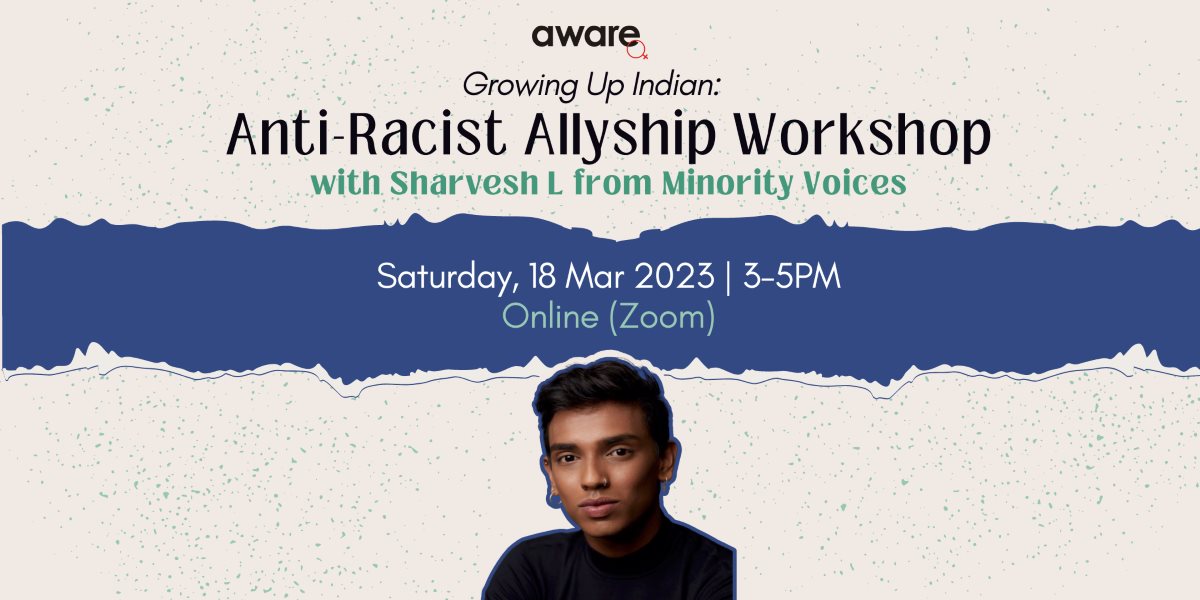Pages where members of the Indian community in Singapore have shared personal experiences relating to race, along with other intersecting identities.
Journals, books and other literary platforms that include Indian writers in Singapore, concerning themes such as race, gender and explorations of identity overall.
Storytelling is a powerful tool in reclaiming one’s identity and sharing one’s truth with the world.
Throughout time, the voices of minority women have been lost or relegated to the margins in the shaping of our history. AWARE’s anthology What We Inherit: Growing Up Indian, embraces these oft-overlooked voices and showcases the deeply personal narratives of Indian women (and some men) in Singapore.
Immerse yourself in this transformative read that celebrates the resilience, strength, and beauty of these writers. Join us as we delve into three selected essays from the book and embrace these stories together with our shared experiences.
No Readgrets discussions are safe spaces to nurture conversations and connections over inspiring books and explorations beyond their pages.

To be human is to tell stories. Do you know a woman in Singapore whose life experiences you would like to bear witness to—whose stories you believe to be worthy of record?
Over the centuries, women’s experiences have been lost to the historical record. Even as history writing expanded from a record of great men and their exploits to include women and other marginalised groups, minority women’s histories have often been given short shrift.
Whether published in print, streamed as a podcast or delivered in yet another innovative medium, oral history—an organic mode of doing history by eliciting stories through interviews—can be an incredibly effective tool for validating the experiences of minority women. Join us for an interactive two-hour workshop with writer Mandakini Arora to explore the beauty and importance of oral history, and how best to engage in it in the Singapore context. As a participant, you will share your ideas on interesting interview subjects, brainstorm possible questions to ask of interviewees, and formulate an outline of your own oral history project. You too can be part of the great work of enriching our country’s archives and centering otherwise forgotten narratives.

We all have a story to tell, but how do we go about writing it? In AWARE’s 2022 anthology, What We Inherit, Indian women writers expressed their stories via the form of the personal essay. If you were inspired by those essays, or simply wish to learn how to reflect on your experience and write your own story as an Indian woman, this workshop is for you!
In this two-hour workshop, author Balli Kaur Jaswal (Sugarbread, Erotic Stories for Punjabi Widows) will guide you down memory lane to craft a memoir essay, a subset of creative non-fiction. As participants, you’ll learn how to construct narratives from your recollections of personal events, and engage in writing activities and peer feedback sessions to develop memoir essays about the intersections of identity and memory.

It’s an unpleasant feeling, but one that, in all likelihood, most of us are familiar with: the dawning realisation that we enjoy privilege that others around us do not. That this privilege—whether of race, gender, sexual orientation, class or more—confers certain unearned benefits onto us, which we may have taken for granted all our lives. That even if we wanted to, there is little we could do to discard or otherwise neutralise our own privilege. What do we do with this uncomfortable knowledge? The answer lies not in ignoring our privilege, or throwing our hands up in despair—it lies in allyship.
Join us on 18 March for an intersectional allyship workshop, with a central focus on anti-racist allyship. This Zoom session will feature an introductory presentation by facilitator Sharvesh Leatchmanan (Minority Voices Singapore), a community sharing and a small-group discussion. Whether you’re new to the concept of allyship, or you want to refine and expand your existing practice, we welcome you into this space for questions and personal stories that may be difficult to express.
